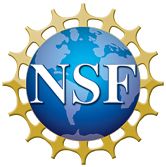Abban, 2016
An enhanced Bayesian fingerprinting framework for studying sediment source dynamics in intensively managed landscapes
Abban, B., Papanicolaou, A.N., Cowles, M.K., Wilson, C.G., Abaci, O., Wacha, K., Schilling, K., and Schnoebelen, D. (2016)
Water Resources Research
-
IML, GRAD STUDENT
-
IML, INVESTIGATOR
-
IML, INVESTIGATOR
-
IML, GRAD STUDENT
-
IML, INVESTIGATOR
Plain English Summary
An enhanced revision of the Fox and Papanicolaou (hereafter referred to as ‘‘F-P’’) (2008a) Bayesian, Markov Chain Monte Carlo fingerprinting framework for estimating sediment source contributions and their associated uncertainties is presented. The F-P framework included two key deterministic parameters, a and b, that, respectively, reflected the spatial origin attributes of sources and the time history of eroded material delivered to and collected at the watershed outlet. However, the deterministic treatment of a and b is limited to cases with well-defined spatial partitioning of sources, high sediment delivery, and relatively short travel times with little variability in transport within the watershed. For event-based studies in intensively managed landscapes, this may be inadequate since landscape heterogeneity results in variabilities in source contributions, their pathways, delivery times, and storage within the watershed. Thus, probabilistic treatments of a and b are implemented in the enhanced framework to account for these variabilities. To evaluate the effects of the treatments of a and b on source partitioning, both frameworks are applied to the South Amana Subwatershed (SASW) in the U.S. midwest. The enhanced framework is found to estimate mean source contributions that are in good agreement with estimates from other studies in SASW. The enhanced framework is also able to produce expected trends in uncertainty during the study period, unlike the F-P framework, which does not perform as expected. Overall, the enhanced framework is found to be less sensitive to changes in a and b than the F-P framework, and, therefore, is more robust and desirable from a management standpoint.
Citation
Abban, B., Papanicolaou, A.N., Cowles, M.K., Wilson, C.G., Abaci, O., Wacha, K., Schilling, K., and Schnoebelen, D. (2016): An enhanced Bayesian fingerprinting framework for studying sediment source dynamics in intensively managed landscapes. Water Resources Research. DOI: 10.1002/2015WR018030
 This Paper/Book acknowledges NSF CZO grant support.
This Paper/Book acknowledges NSF CZO grant support.
Explore Further





